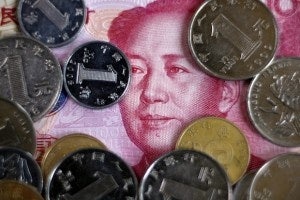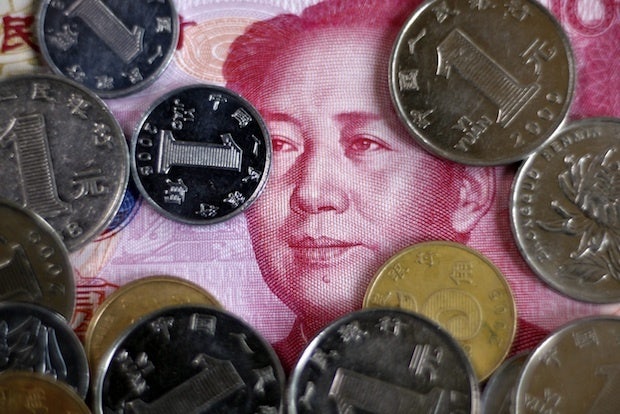Sales Of Wealth Management Products (WMPs) By Chinese Banks Surged In First Half Of Year#

China's wealthy aren't just pouring money into the art market, international real estate, yachts and private aviation, wine and jewelry, they're investing heavily in wealth management products (WMPs), according to a new survey released this week. As Reuters notes, sales of WMPs by Chinese banks totaled 12.14 trillion yuan ($1.90 trillion) from January to June of 2012, up 43 percent year-over-year, the survey from Chengdu-based wealth management consultancy CN Benefit showed. In the second quarter alone, issuance totaled a massive 6.65 trillion yuan (US$1 trillion). With many in China abandoning ordinary bank deposits in lieu of higher yielding WMPs, however, some worry that the surging interest in WMPs could create "hidden risks" in China's banking system.
As customers invest more in WMPs, Reuters points out, banks' cost of funds rise, and their funding base becomes less stable due to the tendency of customers to chase the highest yields by transferring funds frequently between competing products:
Bank of China, China Merchants Bank, Industrial and Commercial Bank of China, and Huaxia Bank took the top five spots in terms of issuance volume. But the report noted that the fastest growth occurred at small, city commercial banks.
The report also sheds new light on what type of assets underlie WMPs. Disclosures accompanying the sale of such products are often spotty, raising some fears among analysts that banks may be using the proceeds to fund risky loans to real estate developers or local government financing vehicles.
The report may put some of these fears to rest. It shows that 52 percent of all WMPs invest in relatively safe bond and money market instruments. Due to increased regulatory restrictions, less than one percent of products are based on loans and corporate, the report said.
However, 34 percent of products are classified as "mixed," which means they could be partially based on loans or other illiquid investments.
Concern has centered around the potential maturity mismatch created by the short maturity of WMPs compared to the longer maturity of the loans that banks are using WMPs to finance.
According to a recent survey of 1,200 WMP investors around China published by Citigroup in May, 73 percent of respondents planned to invest more in these products in the next year, with the Wall Street Journal noting an “exodus” from bank deposits among wealthy Chinese. As Citibank’s study concluded, “[WMPs] are likely to continue to grow rapidly in China and to maintain their drag on deposits in the near term.” This growing interest in wealth management among wealthy Chinese has given an increasing number of banks the motivation to offer a wider array of these products, with the Australia and New Zealand (ANZ) Banking Group saying earlier this year that it plans to invest US$300 million to support the growth of its China subsidiary and boost its presence in the Asia market. As ANZ CEO Mike Smith said in Beijing, the bank is “on the verge of getting the green light” to provide retail banking and wealth management services in China. Said Smith, “Wealth management and individual wealth products are definitely things we will look at in future.”
As overall Chinese economic growth has slowed this year, banks expect an increase in the number of wealthy individuals to seek higher rates of return via wealth management services, with the Australian noting in May that ”many households are taking advantage of the gradual opening of access to other wealth-management products than bank deposits, the return of which is generally below the inflation rate.” Now the question is whether Chinese investors will wise up to the risks involved in WMPs, and whether the industry will mature quickly enough to ensure it doesn't risk destabilizing the Chinese banking system.
As Reuters concludes this week, the industry is expected to gradually move to a model based on publishing net asset values, so that the risks are more obvious to investors. As Xiao Fang, lead author of CN Benefit's report, put it, "The industry is still in an exploratory phase."
